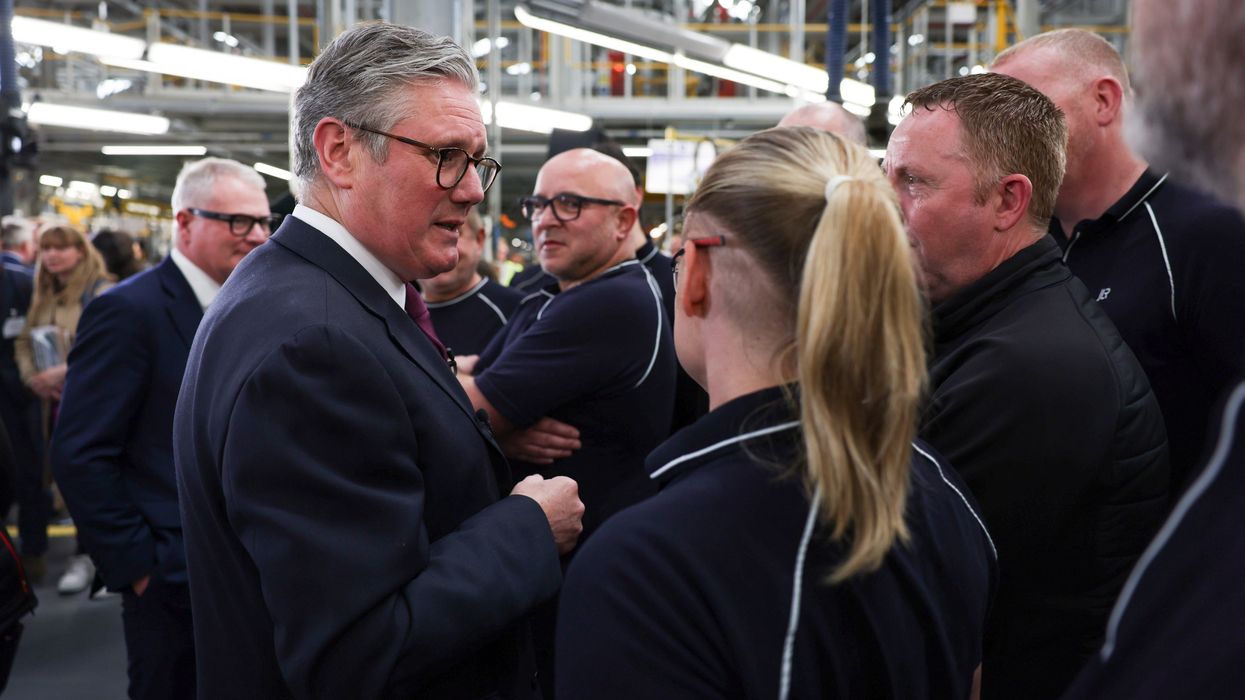PRIME MINISTER Keir Starmer visited Jaguar Land Rover’s (JLR) headquarters in the West Midlands on Monday as the country’s largest carmaker, owned by Tata Motors, deals with the fallout of US president Donald Trump’s global trade tariffs.
The car industry is among the hardest hit, with a 25 per cent tariff imposed on imported vehicles. JLR recently said it would “pause” shipments to the US while it assesses the impact of the “new trading terms”.
Speaking to JLR workers, Starmer said the UK government would change course on its electric vehicle (EV) rules to support domestic carmakers. “I think EV targets are a good thing, they're good for the climate, good for business certainty and investment, good for British manufacturing,” said Starmer.
“But I accept that those targets have to work for British manufacturers and I don't want British firms like this one put in a position where you have to pay a hefty fine or buy credits from foreign EV companies. So today we're going to introduce much more flexibility into EV mandates, we're going to help companies based in Britain reach the targets in a way that supports growth,” he added.
He also announced a 20 per cent cut in any fines and said the money raised would be invested back into the British car industry.
While acknowledging that tariffs are not welcomed, Starmer said the UK is ready for a phase of “industrial renewal”.
He said: “Nobody welcomes tariffs, we don't want to get into a trade war. Obviously, we will continue to talk to the US about a (trade) deal to alleviate the situation whilst keeping all options on the table, but what's important and in direct answer to your question is at a moment like this we have to shape our future, we have to step up.”
He added: “We can't be cowed and simply say there are things happening in a changing world which make it more difficult and therefore we retreat. This is the moment to seize the opportunity.”
Asked if the invitation to Donald Trump for a State Visit to the UK could be reconsidered, Starmer said: “It's not in our interest to simply rip up that relationship. We have to keep pragmatic and calm in the steps that we take, but we also need to keep a sense of perspective and context. We have to step up the challenges that tariffs undoubtedly put on the table to us.”
Starmer reiterated that any trade agreement with the US would be made only if it is in the UK’s national interest and right for security and working people.
In his speech, the prime minister also announced a government investment of up to GBP 600 million to create a new Health Data Research Service. The plan aims to provide a “secure single access point” to national-scale NHS datasets and cut red tape for researchers.
“Life sciences, like our brilliant car industry, is a great British success story. The measures I am announcing today will turbocharge medical research and deliver better patient care. I am determined to make Britain the best place in the world to invest in medical research,” Starmer said.
According to the Department for Science, Innovation and Technology (DSIT), the move is aimed at speeding up the discovery of life-saving drugs and improving patient care.
Clinical trials will be fast-tracked, with the time to set up trials cut to 150 days by March 2026. In 2022, the average time was over 250 days.
DSIT said this will be done by reducing bureaucracy, standardising contracts, and publishing trust-level data for the first time.
(With inputs from PTI)





